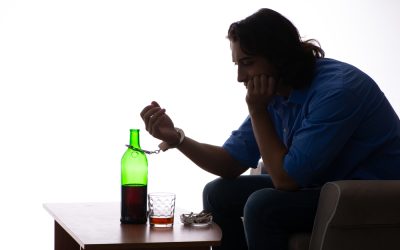At Woodland Recovery Center, we believe healing happens best in a community. Our addiction therapy model is designed to help people feel supported, empowered, and connected as they work toward lasting recovery. Whether you’re exploring treatment in Mississippi for the first time or looking for continued support, we’re here to guide you.
- This can be especially helpful when dealing with trauma or deeply ingrained emotional patterns related to addiction.
- The program here at Two Dreams focuses on the improvement of one’s life through the achievement of mental peace, physical well-being, and personal productivity.
- Think of emotional problems you face, such as depression or a bad temper.
- Overall, coping skills workshops not only provide valuable strategies for recovery but also enhance the support system within the group.
Building Confidence and Self-Esteem
Sharing these letters in a group setting can lead to powerful discussions and emotional breakthroughs. CBT activities are solution-focused exercises and techniques that aim to improve mental health and substance abuse treatment outcomes in a fun and engaging way. Coping strategies brainstorming sessions can be both fun and productive. Participants work together to come up with as many healthy coping mechanisms as possible, from the practical (calling a sponsor) to the creative (writing a song about cravings). The goal is to build a diverse “toolbox” of strategies that participants can draw from in times of stress or temptation.

Embracing the power of laughter, creativity, and unity, addiction group therapy transforms the recovery journey through a kaleidoscope of engaging activities designed to heal, inspire, and empower. Gone are the days of dull, monotonous sessions where participants struggle to stay awake. Today’s addiction recovery landscape is bursting with innovative approaches that breathe new life into the healing process. Art therapy is a creative way for individuals to express emotions that may be difficult to verbalize. In this experiential activity for group therapy, participants are encouraged to use paints, pencils, or other materials to create images that represent their feelings or experiences in https://ecosoberhouse.com/ recovery. Art therapy allows for emotional release and fosters self-expression, without the need for words.
What Does a Breathwork Session Include?
It’s a dynamic, multifaceted approach that can be both challenging and incredibly rewarding. When done right, it creates a microcosm of the real world, allowing participants to practice new skills, gain insights, and build connections in a safe, supportive environment. It’s important to note that art therapy for addiction should be facilitated by trained professionals. Art therapists working in addiction treatment typically have specialized training in both art therapy techniques and addiction recovery principles.

Team-Building Exercises And Trust-Building Games
Then write about or discuss ways you can serve the same purpose in a more positive way, such as allowing yourself regular sessions of peaceful self-care to stave off overwhelm. Daily mood charts or mood trackers are a great way to help clients understand the link between their environment, situation, and feelings. Therapists can then help members understand the relationship between situations and emotions and how clients can better cope with those emotions in the future. Some people find it hard to say no to substance use in social gatherings or parties. Through this activity, you can encourage your participants to say no to drug use clearly.
Ask participants to create visual boards showcasing their recovery goals and aspirations to ignite stimulating conversations and reflection. The letters B-I-N-G-O are replaced with categories related to substance abuse, such as “Triggers”, drug addiction and the numbers are replaced with relevant responses, such as “Witnessing Drug Use”. These groups are designed to build a better understanding of the topic and for individuals to learn how to apply learned knowledge to their overall wellness and recovery efforts. These exercises help you prepare for challenges before they happen and build confidence skills that will help you handle any situation that arises in the real world. These group activities strive to demonstrate the importance of good communication and develop someone’s verbal and non-verbal communication skills. For the group’s first half, allow your clients to paste the strips to their posters.
What Are Essential Relapse Prevention Coping Skills?

Focusing on skills like refusal strategies and managing peer pressure helps participants better navigate the challenges of maintaining sobriety. Clients receive blank pieces of paper and are tasked to write the names of who they think is most likely and least likely to relapse. After writing their own name on the sheet, they turn it in to staff (effectively allowing staff to maintain a safe and productive environment). If they choose, clients can share what they wrote and provide additional feedback.
Treatment the Way You Need It
At Recovery Guide, our mission is to connect as many individuals struggling with mental health and substance abuse disorders to reputable treatment facilities. ChoicePoint aims to improve the quality of life for people struggling with substance use disorder and mental health issues. Our team of licensed medical professionals research, edit and review the content before publishing.
Overcoming Challenges in Art Therapy for Addiction
A printable deck of cards with 128 coping skills for managing stress, anxiety, and other difficult emotions. These questions are designed to encourage self-reflection and group discussion while fostering a supportive and nonjudgmental environment. Your muscles are stimulated, your lungs are filled with oxygen, and you inhale and exhale, all as you follow the instructor’s direction and the music.
- The group can also comfort members through times of crisis and guide them.
- At Recovery Guide, our mission is to connect as many individuals struggling with mental health and substance abuse disorders to reputable treatment facilities.
- Clients receive blank pieces of paper and are tasked to write the names of who they think is most likely and least likely to relapse.
- You can also keep a compassion box in which group members can write positive notes for other members.
Staying on Track: Relapse Prevention and Coping Skills
For a more introspective approach, emotion collage creation can be powerful. substance abuse group activities Participants use magazines, photos, and art supplies to create visual representations of their emotional landscapes. This activity allows for expression of complex feelings that might be hard to put into words. Plus, it’s a great way to incorporate gratitude into group therapy activities, by encouraging participants to include positive emotions and experiences in their collages.

No comment